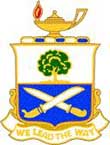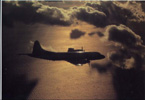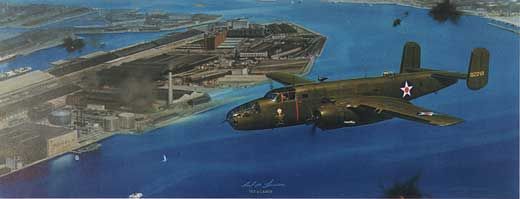ChezDaJez
Posts: 3436
Joined: 11/12/2004
From: Chehalis, WA
Status: offline

|
quote:
Similarly, many (most?) modern Japanese do believe that their country was the wrongful aggressor in WWII. A great deal of attention is paid internationally to those nationalists who don't think so. For example, one of the latest international flaps was over a schoolbook that white-washed Japan's WWII atrocities -- but fewer than 1% of Japan's schoolchildren were in districts that approved the book.
I made 3 deployments to Japan; 2 to Misawa (northern Honsho) and 1 to Okinawa. Just outside of Misawa is a Japanese P-3 base called Hachinoe where VP-4 from the JMSDF is stationed. We had many occasions to rub elbows with our Japanese counterparts. My Chief's Mess invited their chiefs over for dinner one evening and a small group of us had quite the discussion concerning WWII (after a few refreshments of course).
I don't remember a lot of what we talked about but there were some definite "hotspots" that I remember pretty well. All of them had relatives that died in the war. One man's father had lost his parents and all of his siblings in combat or the fire bombings. Another's father had been a crewman on a transport plane that was shot down off the coast of Okinawa just prior to the invasion. He drifted for several days before a fishing boat found him.
Most of the Japanese chiefs felt that Japan was the aggressor in the war but they also felt that the British, Dutch and American governments had done everything short of shooting to push them into it, primarily due to the economic embargoes placed on them. They all felt that the China war was simply used as an excuse by the Allies to "keep Japan in her place." They also felt that Japan could not have won the war no matter what they did
One point that really prompted discussion was the atomic bombs. Most of them felt that their use had been justified however they also felt that cities shouldn't have been the targets. One of my chiefs asked them if Japan would have used them had they developed them before the US and they all said yes, but not in the same way we used them. Most of them felt that Japan would have used them on the invasion beaches in Okinawa if they had been available then otherwise they would have been used on the invasion beaches in Japan proper. Most felt that their use on the beaches could have resulted in a negotiated peace settlement. None of them felt that Japan could win the war by using them offensively, that they would have been used in a "defensive" way because Japan no longer had the means to deliver them anywhere else. One Japanese chief suggested that they could have been loaded on a submarine and sent to a west coast city and exploded but he also felt that would have only made things much worse for Japan.
The discussions concerning the treatment of POWs was most enlightening and animated. Most of them said that their own soldiers were treated very badly in the field by their own officers and why should a POW expect to be treated better than their own soldiers? When asked about starving prisoners to death, many of them said what was the difference between starving in a POW camp or starving to death on an island that had been bypassed in the Pacific?
They did all agree that Japan had committed atrocities during the war but also said that no one side had clean hands. Most felt that the terror type operations conducted in the PI and SRA against guerillas were justified but that the chemical experiments and similar atrocities should never have been undertaken. I got the impression that most felt a defeated enemy's military deserved harsh treatment but that the line should be drawn when it came to civilians unless the civilians were conducting a guerilla campaign.
We also talked about the Kamikazes quite a bit. Most of the Japanese chiefs felt that the idea of using Kamikazes was simply a product of the situation Japan found herself in and that they couldn't see a situation today or in the future where men would blindly volunteer for missions like that.
What I really remember is that they all seemed to believe that Japan surrendered because of the Russian invasion, not the dropping of the atomic bombs. They all felt that Russia's declaration of war meant that Japan would have been largely occupied by Russian forces before the US had time to invade Japan proper and that was something to be avoided at all costs.
Anyways, we had some good, deep and sometimes animated discussions but they never became acrimonious.
Chez
_____________________________
Ret Navy AWCS (1972-1998)
VP-5, Jacksonville, Fl 1973-78
ASW Ops Center, Rota, Spain 1978-81
VP-40, Mt View, Ca 1981-87
Patrol Wing 10, Mt View, CA 1987-90
ASW Ops Center, Adak, Ak 1990-92
NRD Seattle 1992-96
VP-46, Whidbey Isl, Wa 1996-98
|
 Printable Version
Printable Version









 which really beats having to call something a Michigan or Pre-Michigan so thank god those Brits put the elbow greese on!
which really beats having to call something a Michigan or Pre-Michigan so thank god those Brits put the elbow greese on! 








 the above is just my .02 cents)
the above is just my .02 cents) 







 New Messages
New Messages No New Messages
No New Messages Hot Topic w/ New Messages
Hot Topic w/ New Messages Hot Topic w/o New Messages
Hot Topic w/o New Messages Locked w/ New Messages
Locked w/ New Messages Locked w/o New Messages
Locked w/o New Messages Post New Thread
Post New Thread